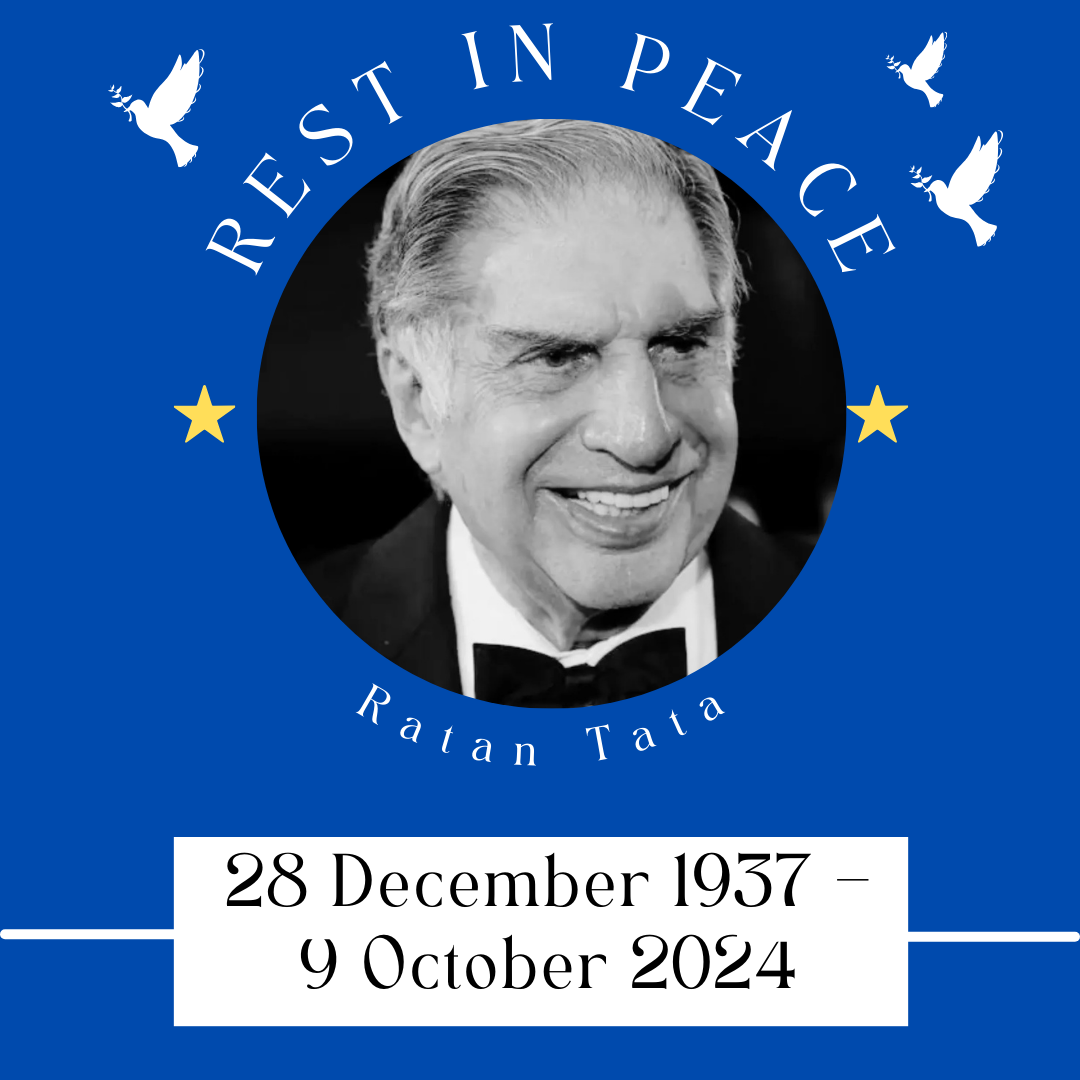Ratan Tata A Legacy of Business and Philanthropy: October 9, 2024 – The world has bid farewell to one of its most respected business leaders, Ratan Tata, who passed away on October 9, at the age of 86. His death marks the end of an era for India and the global business community. Ratan Tata was more than just a businessman; he was a visionary who transformed Tata Group into an international powerhouse, leaving a lasting impact on both the corporate world and society.
Early Life and Rise to Leadership
Ratan Naval Tata was born on December 28, 1937, into one of India’s most prestigious families. The Tata family was known for its philanthropic contributions and business leadership. Ratan Tata was raised by his grandmother after his parents separated when he was just ten years old. He studied at Cornell University and Harvard Business School before returning to India in the 1960s to join the family business.
In 1991, Ratan Tata took over as the Chairman of Tata Group. He faced immense pressure to live up to the legacy left by his predecessor, J.R.D. Tata. Despite the challenges, Ratan Tata soon proved that he was not only capable but also forward-thinking. Under his leadership, Tata Group expanded its presence in various industries, from steel to automobiles, software, telecommunications, and more.
Expanding Tata Group Globally
One of Ratan Tata’s most significant achievements was taking the Tata brand beyond India. Before his leadership, Tata was already a well-established name in India. However, he had a vision to transform it into a global giant. Under his direction, Tata Group made several key acquisitions, which were pivotal to its international growth.
In 2000, Tata Group acquired Tetley Tea, a British brand. This move put Tata on the global map in the beverage industry. It was followed by Tata’s acquisition of the UK-based steel company, Corus, in 2007. This $12 billion deal was one of the largest overseas acquisitions by an Indian company. Later, in 2008, Tata Motors took a bold step by purchasing the iconic British car brands Jaguar and Land Rover. These acquisitions were strategic, as they not only elevated Tata’s global presence but also brought advanced technology and expertise to India.
Innovations and Contributions to Society Ratan Tata A Legacy of Business
Ratan Tata was not just focused on profits. He cared deeply about improving society. Under his leadership, Tata Group made significant contributions to the Indian economy and society at large. One of his most innovative projects was the launch of the Tata Nano in 2009. His vision was to provide an affordable car for India’s middle class, making transportation more accessible. Though the car did not succeed as expected, it showcased his determination to solve real-world problems.
Ratan Tata also had a deep commitment to philanthropy. A large part of Tata Group’s profits was dedicated to charitable causes, from healthcare to education and rural development. He personally supported numerous initiatives that aimed to empower underprivileged communities.
Impact on Tata Group and Its Recent Struggles Ratan Tata A Legacy of Business
While Ratan Tata’s legacy is full of achievements, Tata Group has faced challenges in recent years. The global expansion, though impressive, came with its own set of difficulties. Several acquisitions, such as the purchase of Corus and Jaguar Land Rover, initially boosted Tata’s global standing but later put pressure on its financial stability.
The steel industry, particularly, saw a downturn in the late 2010s, which affected Tata Steel’s profitability. Additionally, competition in the global automobile market made it difficult for Tata Motors to maintain its position. Jaguar Land Rover struggled with declining sales, especially in China and Europe. These challenges led to losses in certain sectors of Tata Group’s diverse portfolio.
Despite these struggles, Tata Group remains a massive conglomerate, and much of its success can still be attributed to the foundation laid by Ratan Tata. His strategic decisions, though risky, brought global recognition and respect to the company.
The Passing of an Icon
As the world reflects on Ratan Tata’s life and legacy, his death on October 9 has left a profound impact on both his admirers and those in the business community. Ratan Tata’s passing has been mourned by many who admired his humility, business acumen, and contributions to society. Despite his immense success, he was known for his simple lifestyle and down-to-earth nature.
Ratan Tata was never married and lived a quiet life, mostly staying out of the public eye after retiring as Chairman in 2012. However, he continued to play an active role as an advisor and was deeply involved in philanthropy until the end of his life.
